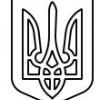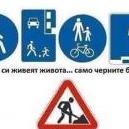Getae
-
Последна активност
-
- 2953 мнения
- 209242 прегледa
-
Светът иска да регулира изкуствения интелект, но не знае как 1 2 3 4 7
От Р. Теодосиев, in Изкуствен Интелект
- 157 мнения
- 10600 прегледa
-
- 1 мнение
- 34 прегледa
-
Руско-украинската война 2022-2024 година. 1 2 3 4 171
От Р. Теодосиев, in Руско-украинската война 2022 година.
- 4254 мнения
- 275874 прегледa
-
- 1213 мнения
- 76900 прегледa
-
-
Последно разглеждащи 0 Потребители
- No registered users viewing this page.




Препръчано мнение
Напиши мнение
Може да публикувате сега и да се регистрирате по-късно. Ако вече имате акаунт, влезте от ТУК , за да публикувате.